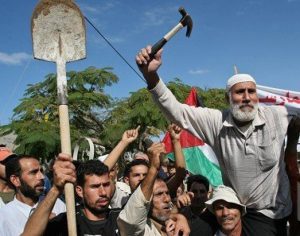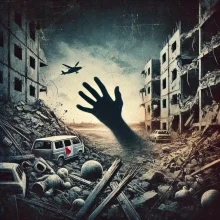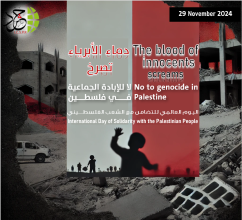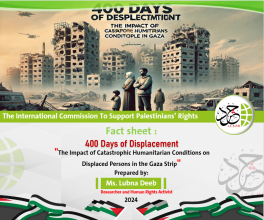
A Briefing Note on the Labor Sector in the Gaza Strip
Press Release
A Briefing Note on the Labor Sector in the Gaza Strip
The International Commission to Support Palestinians’ Rights (ICSPR) highly appreciates your positive and acclaimed role and looks forward to your role in ensuring that the human being has the right to an adequate standard of living and decent work, given the importance and value it entails to enjoying other rights related.
With reference to the above subject, and as part of our follow-up of the situation of this sector in the occupied Palestinian territories, we found it important to brief you about the dangerous regressions, the rise in poverty rates and the growing unemployment in the occupied Palestinian territories, especially in light of the continuing Israeli occupation and its violations against the Palestinians on one hand; the continuation of the Corona pandemic and the Palestinian division on the other.
The rules of international law affirmed that all persons must have a right to work as a means to ensure that they can live a free and dignified life, including the Palestinians, especially in the Gaza Strip, who suffer a real and imminent threat to their economic and humanitarian conditions alike, as a result tightening the Israeli blockade, the repercussions of which have extended to the economic, health and social conditions, and threatens the Palestinian community in general, especially the Gaza Strip, if the international community did not intervene to obligate the occupation authority to assume its responsibilities towards the population of the occupied territory.
the International Commission for Supporting Palestinian Rights (ICSPR) sent all the institutions of the international community Among them: Secretary-General of the United Nations , High Commissioner for Human Rights ,United Nations Peace Process Coordinator, President of the Human Rights Council , UN Special Rapporteur on human rights in the occupied Palestinian territory , UN Special Rapporteur on the right of everyone to the enjoyment of the highest attainable standard of physical and mental health and UN Special Rapporteur on the right to development.
According to the Palestinian Central Bureau of Statistics, during a survey it conducted to determine the proportions of the workforce for 2019 – 2020, it stated the following:
- During 2019, more than half of the population of the Gaza Strip is poor, especially the youth and graduates group, who live below the poverty line;
- The percentage of the unemployed from the age of 15 and over is about 45%, about 215,100 people;
- The unemployment rate increased among the youth to reach 63% of the youth suffering unemployment in the Gaza Strip, where Deir Al-Balah governorate recorded the highest unemployment rate in the Strip, about 52%, followed by the Khan Yunis governorate, about 49%. while Gaza governorate recorded the lowest unemployment rate, about 41%.
- The Corona pandemic, along with the Israeli blockade, affected the overall human rights situation in the Gaza Strip, as the data indicate that the number of unemployed in the first quarter of 2020 in the Gaza Strip reached 211,300, compared to 203,200 in the second quarter of the same year.
- The number of workers in the Gaza Strip in the local market decreased by 9% in the second quarter of 2020, which clarified the unemployment rates in the Gaza Strip, which reached 46% during the first quarter of the year compared to 49% in the second quarter;
- The unemployment rate in the Gaza Strip is three times higher than the West Bank. It is estimated that the majority of the population of the Gaza Strip live on the minimum wage, which is 641 shekels.
- The losses of the Palestinian workers sector in Gaza amounted to 32 million dollars for 20 working days during which they were not paid due to the Coronavirus pandemic;
- The wages of workers in the Gaza Strip amount to about 35 shekels per day at its best (10 dollars), and that the number of unemployed workers and those affected by the pandemic reached about 160 thousand.
- Every day that passes, workers lose wages estimated at one million and 600 thousand dollars, at a rate of 32 million dollars during the 20 days during which they did not work because of the pandemic;
- Factories capacity and productivity have decreased dramatically. Currently, only 100 out of 2000 factories are operating in the Gaza Strip, while before the pandemic, they employed 21,000 workers, most of whom were unemployed;
- The factories currently operating are specialized in the field of sewing for the manufacture of medical clothes, masks, protective clothing, food, milk, plastic, bags, paper, cardboard boxes, and wood for export, with a limited production capacity, and only hundreds of workers are employed by them;
- About 20 thousand drivers working to load passengers were suspended due to the pandemic, about 3 thousand workers in spinning and weaving, and nearly 30 thousand farmers;
- 4 thousand fishermen were suspended due to the closure of the sea, 600 workers in commercial malls, thousands of street vendors, owners of stalls, and workers in shops in various fields;
- Five thousand workers working in the tourism sector have been unemployed, 2,800 are working in kindergartens and transporting school and university students, and about 30,000 workers work in the construction sector and related fields; This led to an increase in the unemployment rate among workers to nearly 75%, and the number of unemployed reached about 250,000 workers, and the report expected an increase in these numbers in the statistics that will be issued at the end of this year.
The numbers and statistics constitute the state of misery in which the Palestinian people live, especially in the Gaza Strip in light of the intensification of the Israeli blockade imposed on the Gaza Strip for the 14th consecutive year on land and sea, which will increase the complexities of the rest of the sectors, and will affect the social conditions, as the rates of crimes, suicide, violence, drug abuse, depression, illiteracy, and other dimensions that will divide the Palestinian social fabric.
As you know, what the Israeli occupation forces are doing is considered a crime of collective punishment against civilians in the Gaza Strip for violating the established provisions of international human rights and international humanitarian laws, which emphasized the occupation’s obligations towards the civilian population in the land it occupied. However, the Israeli occupation authorities practice a policy of delaying the arrival of foodstuffs, the policy of blockade on the Gaza Strip and controlling the Palestinian crossings for 14 years by controlling the materials that enter the Gaza Strip, whether food or health materials, building materials or raw materials, which affected the health sector, which suffers from a shortage of about 50% of medical materials. Besides, the agricultural products sector was affected by controlling the closure of commercial crossings, which caused heavy damage to Palestinian agricultural exports.
We hope that you will intervene now, as Palestinian workers deserve to work for them, in order to ensure that they enjoy a safe and decent standard of living linked to the foundations and standards of human rights, and in a manner that guarantees them a decent future.





